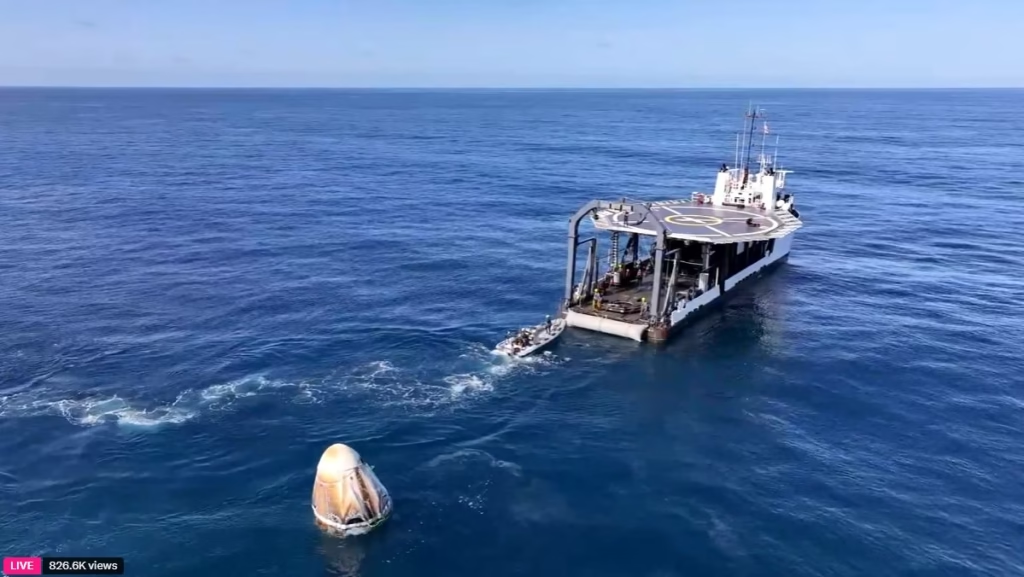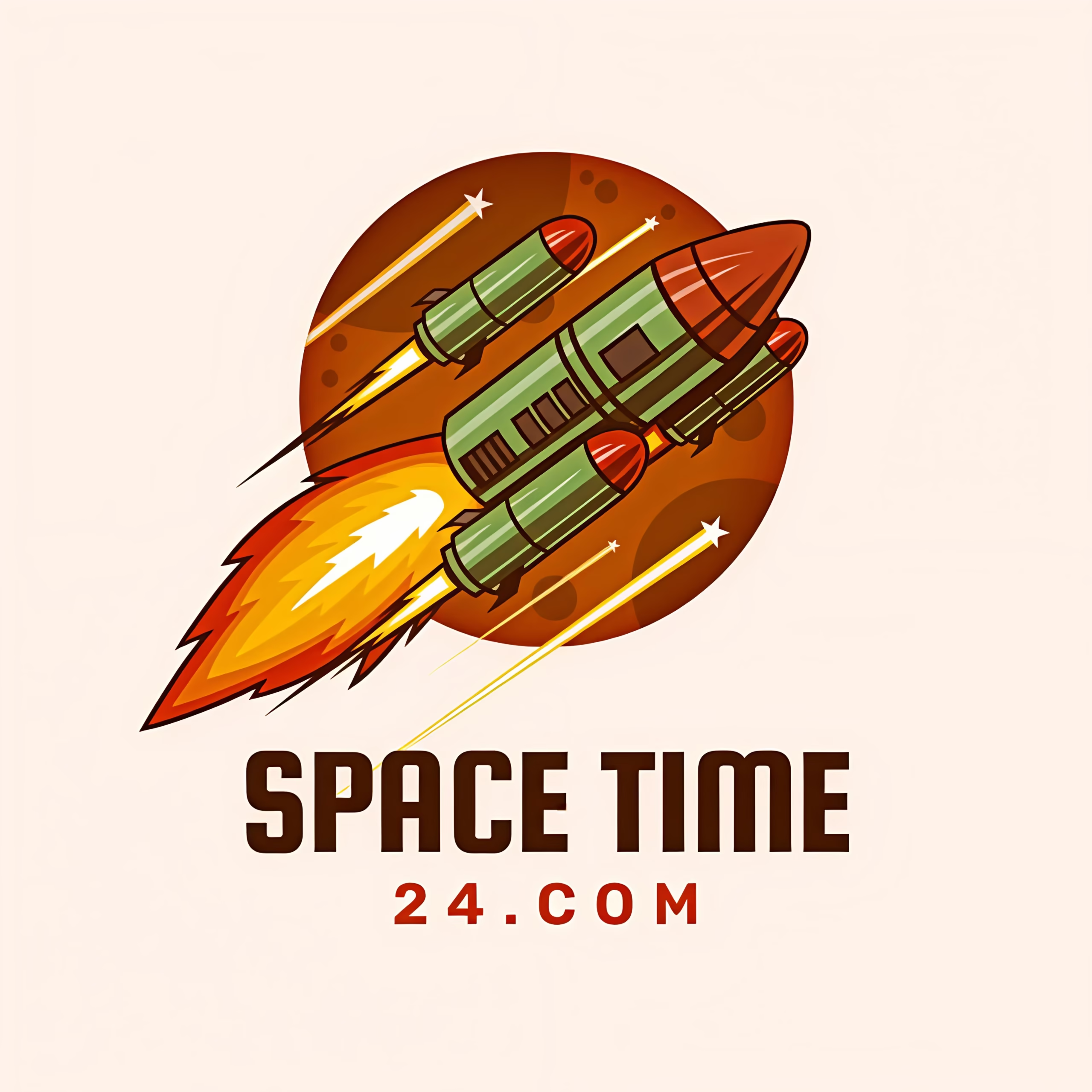How Will Shubhanshu Shukla Return, a member of the Axiom-4 (Ax-4) mission, will return to Earth from the International Space Station (ISS) aboard the SpaceX Crew Dragon spacecraft named “Grace.” The return process involves a series of coordinated steps to ensure a safe and precise landing.

How Will Shubhanshu Shukla Return Process Details
- Mission Duration and Departure Timing
Shubhanshu Shukla and the Ax-4 crew launched to the ISS on June 25, 2025, aboard a SpaceX Falcon 9 rocket from Kennedy Space Center. The Dragon spacecraft docked with the ISS on June 26, 2025. The mission duration is expected to be approximately 14 to 21 days. Upon completion of the mission, the Dragon spacecraft will undock from the ISS to begin the return journey. - Undocking and Deorbit Burn
The Dragon spacecraft will autonomously undock from the Harmony module of the ISS. After a safe distance is established, the spacecraft will perform a deorbit burn—a maneuver that slows the spacecraft’s velocity and initiates atmospheric reentry. This process typically occurs a few hours before reentry. - Atmospheric Reentry and Parachute Deployment
After the deorbit burn, the spacecraft reenters Earth’s atmosphere. The heat shield protects it from extreme temperatures generated by atmospheric friction. Once the vehicle descends to lower altitudes, two drogue parachutes will deploy to stabilize the descent, followed by four main parachutes that slow the vehicle for a safe splashdown. - Splashdown Location and Recovery
The planned splashdown zone is in the Pacific Ocean, off the coast of Southern California—typically near locations such as Los Angeles, San Diego, or Oceanside. A SpaceX recovery team aboard a specialized vessel will be present in the recovery area. Once the capsule lands in the ocean, the team will retrieve the spacecraft, perform initial medical checks on the crew, and transport them by helicopter or boat to a designated recovery facility on land. - Post-Landing Procedures
After recovery, Shubhashu Shukla and the crew will undergo comprehensive medical examinations and debriefing to assess their health and gather mission data. These evaluations are standard for astronauts returning from microgravity environments.
Mission Context and Significance
- Launch Vehicle: SpaceX Falcon 9
- Spacecraft: SpaceX Crew Dragon “Grace”
- Launch Date: June 25, 2025
- Docking with ISS: June 26, 2025
- Estimated Return: Mid-July 2025
- Return Location: Pacific Ocean, near Southern California
- Recovery Operations: Managed by SpaceX, including capsule retrieval and crew transport
This mission marks a historic milestone as it includes Shubhashu Shukla, one of the first private astronauts from India to visit the ISS. His return will follow the standard safety protocols used in previous SpaceX missions to ensure the safe retrieval of crew and spacecraft.
Comparing Return Journeys: Shubhanshu Shukla vs. Sunita Williams
The return of astronauts from the International Space Station (ISS) is a complex and meticulously planned operation. In 2025, two prominent astronauts—Shubhanshu Shukla, part of the Axiom-4 private space mission, and Sunita Williams, a NASA veteran aboard the Boeing Crew Flight Test—made their way back to Earth using similar vehicles but under different conditions. This article outlines the key differences in how both astronauts returned from space.
1. Spacecraft and Mission Context
Shubhanshu Shukla – Axiom-4 Mission
- Spacecraft: SpaceX Crew Dragon “Grace”
- Operator: Axiom Space (Private) in collaboration with SpaceX
- Mission Type: Short-duration private astronaut mission (~14–21 days)
- Objective: Scientific research and international cooperation with private participation aboard the ISS
Sunita Williams – Boeing/NASA Crew Flight Test
- Spacecraft: Boeing CST-100 Starliner (launched); returned on SpaceX Crew Dragon “Freedom” (in alternate scenarios)
- Operator: NASA/Boeing
- Mission Type: Crewed test flight to certify the Boeing Starliner for future NASA missions
- Objective: Validation of spacecraft systems, safety protocols, and crew return readiness
2. Descent and Landing Locations
Shubhanshu Shukla
- Landing Zone: Pacific Ocean, off the coast of Southern California
- Splashdown Approach: Crew Dragon undocks from the ISS, performs a deorbit burn, and reenters Earth’s atmosphere. Parachutes are deployed during descent, and the capsule lands in the Pacific.
- Recovery: Conducted by SpaceX’s Pacific-based recovery teams. The capsule is retrieved by ship, and crew members are medically assessed before being airlifted or ferried to land.
Sunita Williams
- Landing Zone: Gulf of Mexico, off the Florida Panhandle
- Splashdown Approach: Similar parachute-assisted reentry, with descent slowed by drogue and main parachutes before a controlled splashdown.
- Recovery: SpaceX recovery ships based on the East Coast manage retrieval. Crew members are quickly extracted and flown to a NASA medical facility.
3. Landing Environments and Conditions
How will Shubhanshu Shukla return Criteria Shubhanshu Shukla (Pacific Ocean) Sunita Williams (Gulf of Mexico) Sea Conditions Typically rougher; more challenging Generally calmer and more predictable Access to Recovery Ships Longer-range deployment from California Closer to existing NASA/SFX operations Debris Monitoring Lower concern due to remote region Higher scrutiny near populated areas
The Pacific Ocean splashdown allows for reduced risk of debris affecting coastal populations, which has become a growing concern with increasing orbital traffic.
4. Post-Landing Procedure
Shubhanshu Shukla:
How will Shubhanshu Shukla return
- Crew exits via side hatch on the Dragon capsule after stabilization at sea
- Initial medical checks conducted on the recovery ship
- Crew flown to a designated medical center in California for further evaluation
Sunita Williams:
- Crew assisted out of the capsule shortly after splashdown
- Immediate transportation via helicopter to a nearby NASA medical center in Florida
- Debriefings and post-flight analysis performed over the following days
5. Significance of Each Return
- Shubhanshu Shukla’s mission marks one of India’s earliest participations in private commercial spaceflight through Axiom Space. His safe return from a West Coast landing highlights the operational reach of commercial space recovery missions.
- Sunita Williams’ flight is part of a larger certification campaign for Boeing’s Starliner capsule. Although she has flown before, this mission was critical for Boeing to join SpaceX in ferrying astronauts to and from the ISS under NASA’s Commercial Crew Program.
How Will Shubhanshu Shukla Return: Conclusion
Both return journeys demonstrate the growing diversity of human spaceflight missions—spanning public-private partnerships, new commercial operators, and varied landing strategies. While the spacecraft technology (Crew Dragon) is similar, the recovery operations, splashdown zones, and mission purposes differ significantly.
How will Shubhanshu Shukla return
These distinctions illustrate how modern space travel is no longer one-size-fits-all. With multiple providers, evolving technologies, and varied mission types, astronauts like Shubhanshu Shukla and Sunita Williams represent the new era of spaceflight—where returning from orbit is as strategically planned as launching into it.
FAQ: How will Shubhanshu Shukla return to Earth from the ISS
1. How will Shubhanshu Shukla return to Earth from the space station?
I explained that How will Shubhanshu Shukla return aboard the SpaceX Crew Dragon spacecraft “Grace”, the same vehicle that transported him to the International Space Station as part of the Axiom-4 mission.
2. Where will the spacecraft land?
The Crew Dragon capsule is scheduled to splash down in the Pacific Ocean, off the coast of Southern California. This area is one of several approved splashdown zones used by SpaceX.
3. How does the spacecraft descend from space to Earth?
Once the mission ends, the spacecraft will undock from the ISS and perform a deorbit burn to begin its descent. During reentry into Earth’s atmosphere, the spacecraft is protected by a heat shield. At lower altitudes, parachutes deploy to slow the capsule down for a safe ocean landing.
4. What happens immediately after landing?
A SpaceX recovery ship will be stationed near the splashdown zone. The crew will be assisted out of the capsule, receive initial medical checks aboard the recovery vessel, and then be transported to land by helicopter or boat.
5. How long after undocking will the landing occur?
Typically, Crew Dragon returns to Earth within 6 to 19 hours after undocking from the ISS, depending on orbital mechanics and weather conditions at the landing site.
6. What safety measures are in place during reentry and landing?
The Crew Dragon is equipped with:
- A heat shield for protection during atmospheric reentry
- Multiple parachutes for controlled descent
- A flotation system to keep the capsule stable in the water
- Real-time monitoring by mission control teams on Earth
7. Will the landing be broadcast live?
Yes, Axiom Space and SpaceX typically provide live video coverage of undocking, reentry, and splashdown via their official websites and social media platforms.
8. Why is the return location in the Pacific Ocean, not the Gulf of Mexico like some other missions?
The Pacific splashdown site provides:
- Greater distance from populated coastal areas
- Less risk from space debris
- Logistical preference for this specific mission’s timing and trajectory
9. Who is responsible for recovering Shubhanshu Shukla and the crew?
SpaceX manages the entire recovery operation, including locating the capsule, retrieving it from the ocean, assisting the crew, and transporting them to medical facilities.
10. When is Shubhanshu Shukla expected to return to Earth?
The Axiom-4 mission is scheduled to last approximately 14 to 21 days. Based on the launch date of June 25, 2025, the return is expected between mid-July 2025, depending on mission progress and weather conditions.
